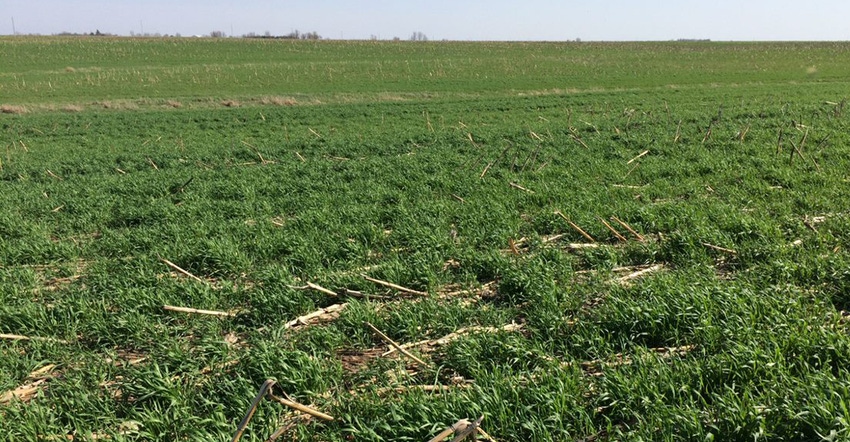August 5, 2019

The historically wet spring of 2019 prevented many conventional and organic farmers in Iowa and across the Midwest from planting corn and soybeans. However, those who ended up planting a cover crop on their prevented planting acres may have an advantage if they want to transition to organic.
“The cover crop year will provide a good opportunity as your first year in the three years of organic transition [T-1; organic certification in 2021],” says Kathleen Delate, professor and Extension organic specialist in horticulture and agronomy with Iowa State University.
Transition prevented planting acres
An upcoming, two-day Organic Agronomy Training Series (OATS) event in LaCrosse, Wis., will provide valuable training on organic production, certification and marketing, including best strategies for transitioning. The Aug. 14-15 training will include information geared toward those who planted cover crops on prevented planting acres, in addition to a full program on the organic industry.
Farmers who purchased crop insurance for their unplanted crop should follow USDA’s rules governing crop insurance, available on the Risk Management Agency website.
Producers can plant a cover crop after the late planting period. Also, for the 2019 crop year, hay, graze or cut for silage (haylage or baleage) before Sept. 1 and receive 35% of a prevented planting payment for the first crop, or wait to hay, graze or cut for silage (haylage or baleage) on or after Sept. 1 and receive a full prevented planting payment for the first crop. ISU Extension’s Ag Decision Maker newsletter provides information on detailed crop insurance payments.
Learn from experts at OATS training
While the Organic Agronomy Training Series is designed primarily for service providers, farmers are also welcome to attend. Participants will learn from experts, researchers, agronomists and organic farmers while also visiting a nearby organic farm that features certified-organic row crop production.
Speakers include ISU’s Delate, who will speak on organic pest management and lead a panel of experienced organic farmers, including Iowans Tom Frantzen of New Hampton and Paul Mugge of Sutherland.
OATS is supported by the Organic Trade Association, Albert Lea Seed, Grain Millers, AgriEnergy Resources, Cashton Farm Supply and Blue River Organic Seed.
Continuing education units for certified crop advisers have been requested for the session.
The OATS sessions will be from 9 a.m. to 5 p.m. Aug. 14 and from 8 a.m. to 5 p.m. Aug. 15 at the Radisson Hotel La Crosse, 200 Second St. South, La Crosse, Wis. The registration deadline is Aug. 7 and can be done online. Walk-ins are welcome. The cost is $85 for two days.
Organic farming outlook
According to the Organic Trade Association, sales of U.S. organic food products have grown from $3.6 billion in 1997 to nearly $52.5 billion in 2018. While organic food sales make up 6% of total U.S. food sales, less than 1% of U.S. farmland is dedicated to organic production, leaving much room for more transitioning farmers to enter the organic marketplace.
After completing the OATS training, participants will be able to:
provide basic agronomic services to certified and transitioning organic producers
discuss successful organic crop production strategies
understand the organic certification and inspection process
advise producers on compliance with all applicable USDA rules and regulations
recommend profitable, diverse crop rotations that meet rotational requirements
understand organic weed-control strategies, including cultural and mechanical
advise on the integration of cover crops and reduced tillage into organic systems
recommend organically approved pest-control strategies
advise on basic organic fertility programs
refer to current research relevant to organic production systems
Source: ISU, which is responsible for information provided and is wholly owned by the source. Informa Business Media and subsidiaries aren’t responsible for any content in this information asset.
You May Also Like




